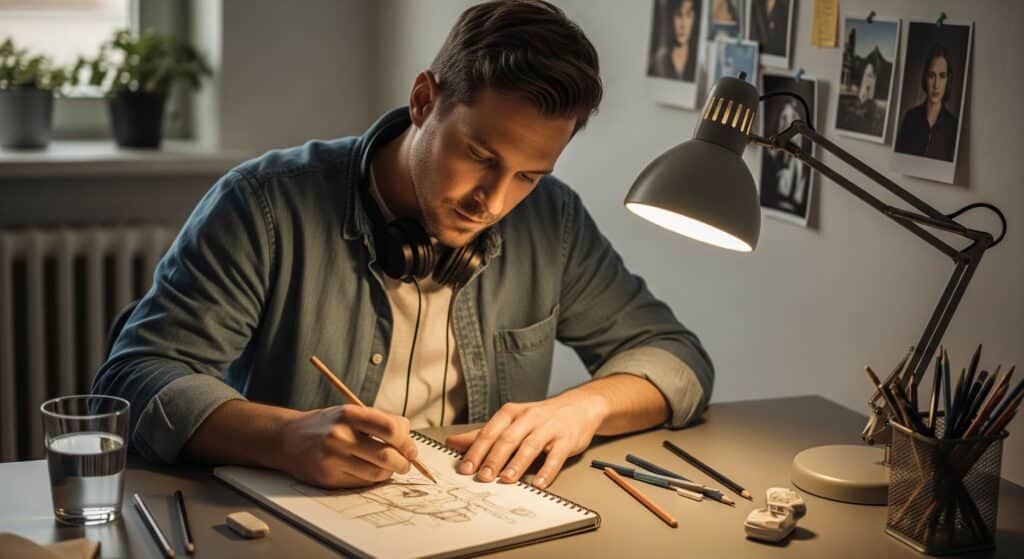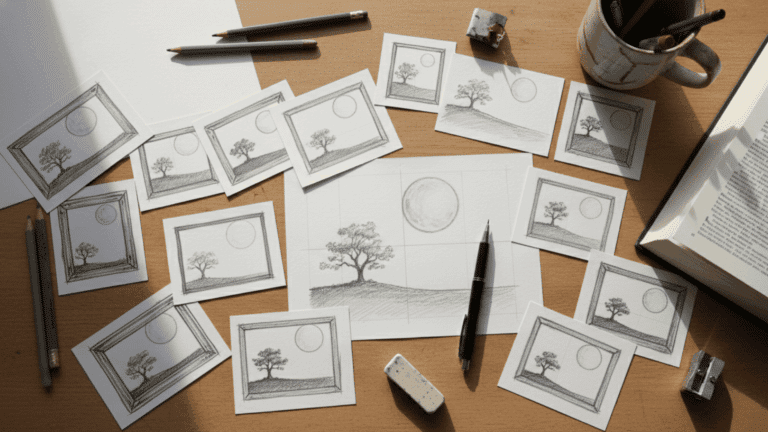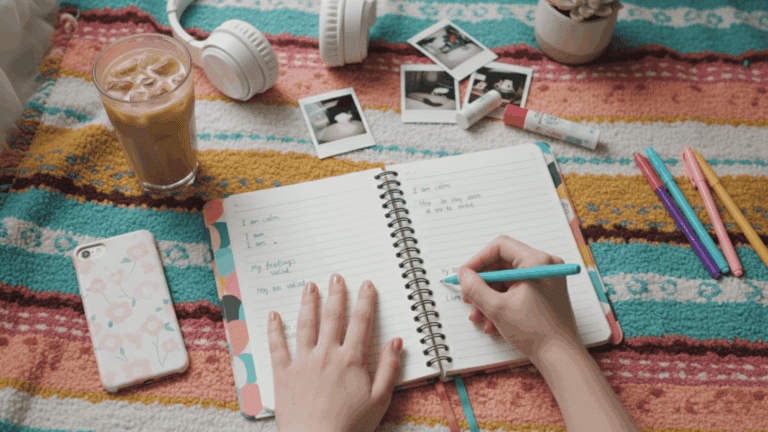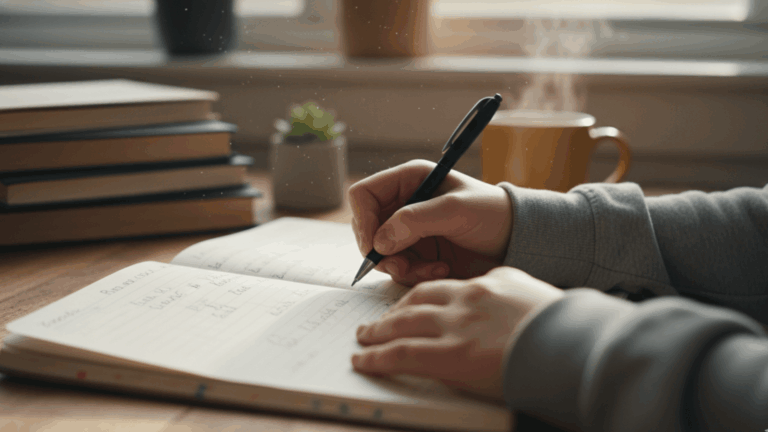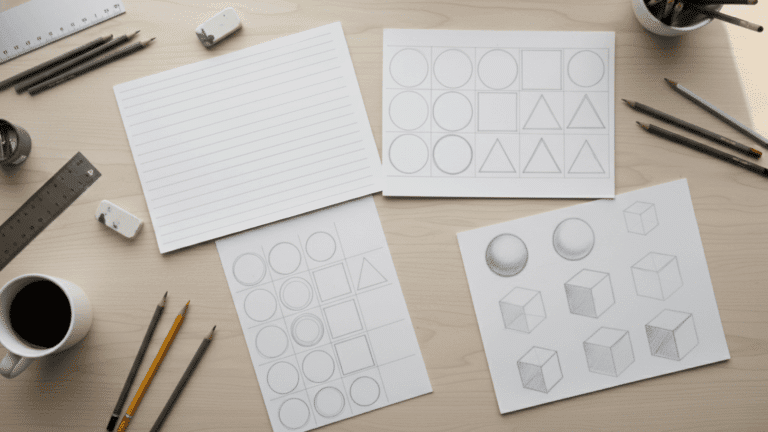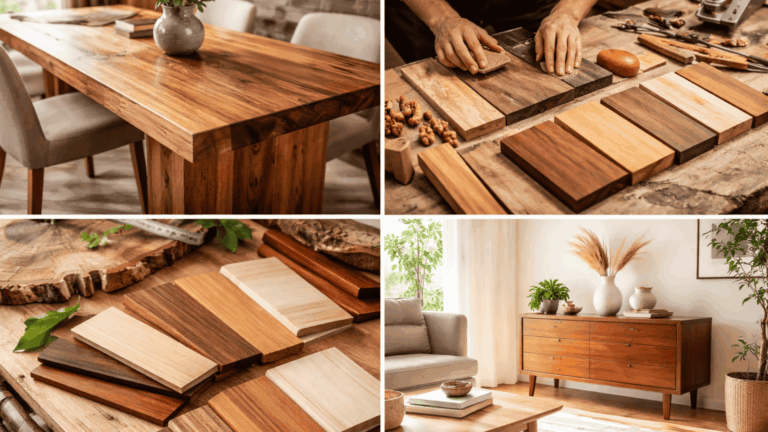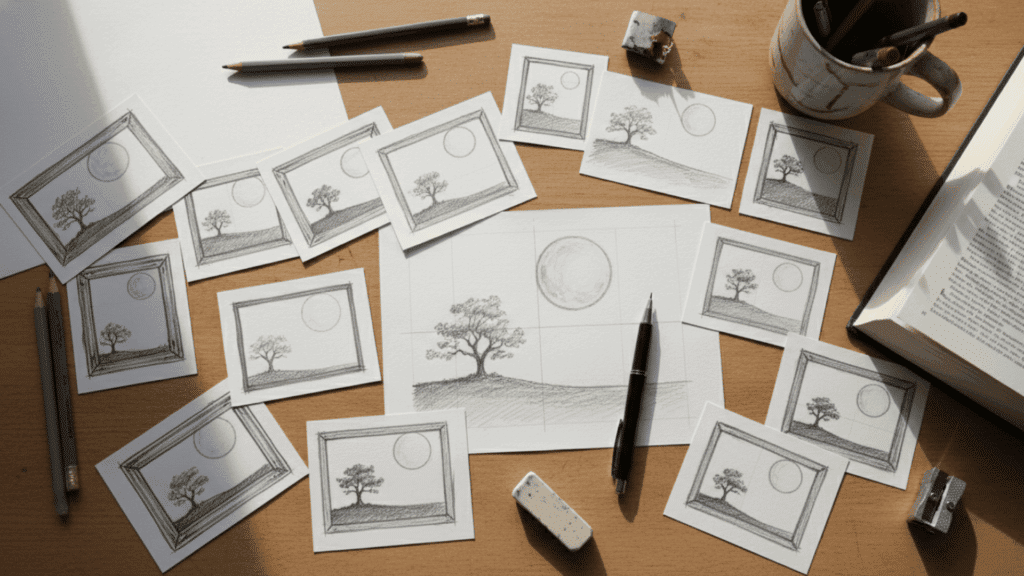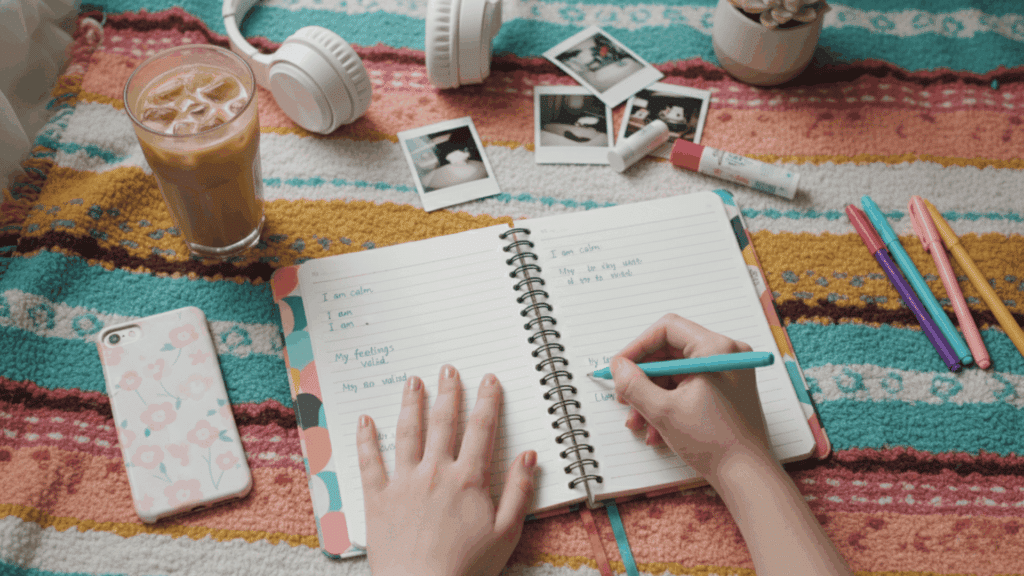You’re frustrated with your drawing progress, aren’t you? You’ve been practicing for months, watching countless tutorials, and buying new supplies, yet your drawings still don’t match your vision.
There’s a straightforward way on how to get better at drawing that doesn’t require expensive classes or natural talent.
Thousands of artists have cracked the code through community-tested methods that work for any skill level, and you can achieve these same results.
This guide reveals artist-proven strategies from Reddit’s r/LearnArt, WetCanvas, and DeviantArt communities.
Why Forum-Tested Drawing Tips Work
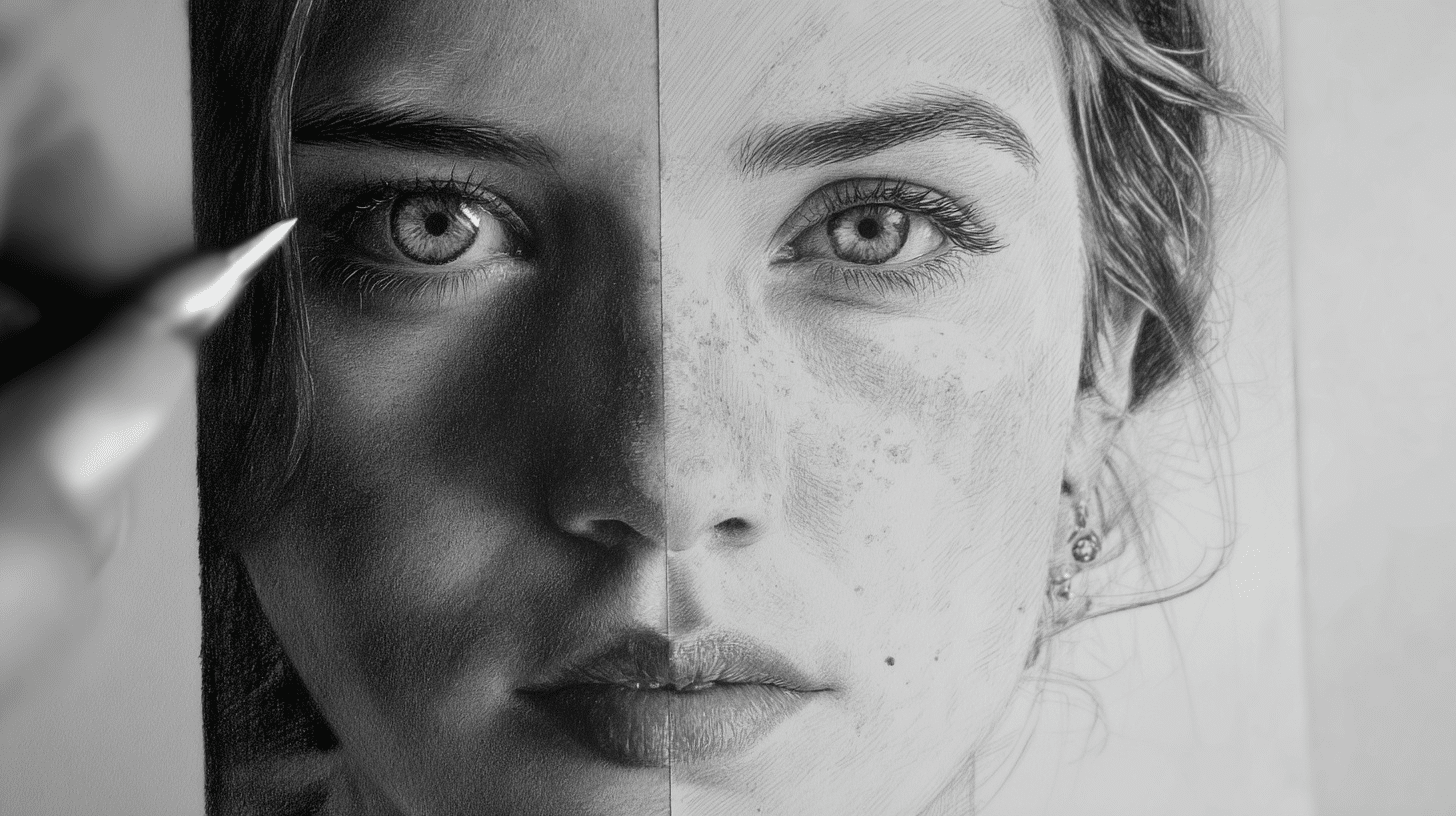
These drawing tips aren’t just theory; they come from thousands of artists sharing what actually made a difference in their skill development.
Communities like r/ArtFundamentals and ConceptArt.org demonstrate that consistent, focused practice consistently outperforms talent or random sketching.
Structured routines, goal-based sessions, and regular community feedback create a learning environment that accelerates skill development. Artists who follow these proven methods develop sharper observation skills, better technical control, and genuine creative confidence.
What you’ll find here isn’t motivational fluff, it’s battle-tested advice from artists who’ve pushed through frustrating plateaus and achieved measurable improvement.
These methods work because they’ve been refined by real experience, not just art school theory.
How to Get Better at Drawing: Drawing Habits that Help
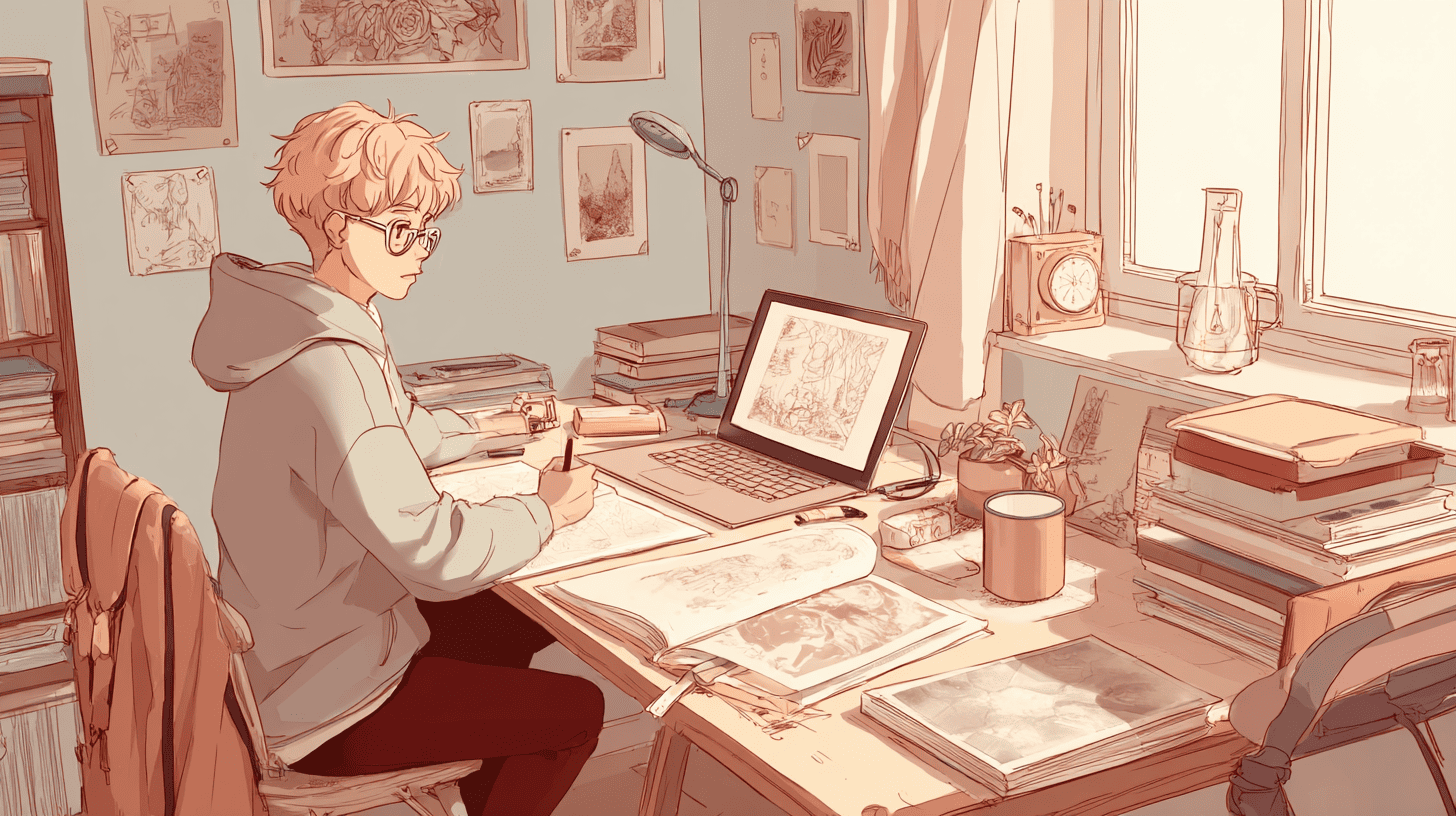
Improving your art isn’t about luck or natural talent; it’s about building consistent, intentional habits. Based on advice shared by experienced artists across trusted communities, these tips focus on what truly makes a difference and help with how to get better at drawing.
If you’re feeling stuck or just starting, these drawing practices are designed to help you grow faster and with more confidence.
Let’s start with the most important habit of all: your mindset.
1. Start With the Right Mindset
The first step to improving your drawing isn’t a pencil, it’s your attitude. Artists from forums like r/learntodraw constantly remind beginners: you won’t master shading, perspective, or anatomy overnight.
Mistakes are not just okay, they’re essential.
Instead of chasing perfection, track your progress. Celebrate small wins. And when you struggle, know you’re not alone; every great artist has been there.
2. Build a Daily Drawing Habit
Even 10–15 minutes of drawing a day can add up fast. Many artists recommend keeping a sketchbook that you can open anywhere, such as on the bus, between classes, or during breaks. Doodles, shape practice, figure studies, whatever fits your mood.
The trick is consistency. And when you review that sketchbook a month later, you’ll likely surprise yourself.
3. Practice Deliberately With Focused Goals
Drawing every day is great, but mindless repetition won’t cut it. Focused practice is what builds skill.
Instead of “I’ll just draw,” say, “Today I’ll draw 10 hands” or “I’ll practice noses from 3 angles.” Forums like Line of Action and Inkroverts stress this kind of structured, goal-based training, and the results speak for themselves.
4. Seek and Apply Constructive Feedback
Many beginners are shy about sharing their work. But feedback can be the fastest way to level up.
Communities like r/drawing and WetCanvas welcome new artists and often provide helpful, actionable critique.
It’s not always easy to hear what needs work, but applying even one suggestion can unlock serious growth.
5. Master Your Tools and Fundamentals
Line control, shape building, shading, and perspective- these basics show up in every good piece of art.
Artists who regularly return to the fundamentals often experience significant jumps in confidence and results.
Spend time just making clean lines. Learn how light works. Play with hatching. Understand form, not just outlines. This is the foundation, no matter your style.
6. Experiment and Cherish New Challenges
Stuck in a rut? Try something different. Use charcoal if you usually work digitally. Draw environments instead of portraits. Or do a daily art challenge like “Draw This In Your Style.”
“Many artists say switching mediums or tackling new prompts helped them reignite their excitement and improve faster than expected.
7. Learn Through Observation and Reference
Don’t just draw from memory; look closely at what you’re trying to draw. Study photos. Trace, then redraw from scratch. Observe light and form in real life.
Many forum artists recommend copying master sketches or pausing videos to sketch poses. These aren’t shortcuts; they’re how you train your eye and hand together.
8. Track Your Progress and Reflect
It’s easy to feel like you’re not improving when you draw daily. That’s why it helps to look back.
Keep your old work. Date your sketches. Write notes about what you struggled with and what you liked. Artists on Reddit often post their 1-year and 2-year comparisons, and they’re incredibly motivating.
9. Join Artist Communities and Stay Inspired
Art can be a lonely pursuit; joining forums, Discord servers, or local meetups helps you stay accountable and motivated.
Whether it’s getting a critique, joining a drawing challenge, or just chatting with people who “get it,” the community makes a difference. Sites like MegaPencil, DeviantArt, and r/learntodraw are full of encouragement and honest advice.
Top Recommended Artist Communities:
- ConceptArt.org – Professional-level discussions, portfolio reviews, and industry insights
- Drawabox Community – Fundamental skills progression with structured lesson plans
- WetCanvas– Established community with extensive tutorials and step-by-step demos
- Proko Discord– Real-time discussions, study groups, and live feedback sessions
Real Artist Advice from Forums & Communities
Artists often share honest tips and roadmaps. Here is what they say:
ArtistForum on Detailed, Accurate Drawing
“There is the Charles Bargue Drawing Course… teaches you how to compare lines and angles… then branch out to shading.”artistforum.com+1LevelUpTalk+1
Reddit r/ArtFundamentals (Visual Library & 3D Forms)
“Drawing from your imagination… depends on developing one’s visual library… and understanding simple 3D forms.”drawabox.com
GigaBrain Summary of Reddit Discussions
Regular practice, focus on fundamentals, use references, seek feedback are the most emphasized stepsReddit+6GigaBrain+6inkroverts.com+6
These insights from real artists can help you stay motivated, improve your skills, and remind you that every artist’s path is unique. Take what works for you and keep creating.
Weekly Review and Goal Setting Checklist
Taking time each week to reflect on your drawing progress helps you identify patterns, celebrate improvements, and adjust your practice routine. This simple review process keeps you moving forward instead of just drawing in circles and helps with how to get better at drawing.
A quick weekly check-in can reveal which techniques are clicking, what’s still challenging you, and where to focus your energy next week for maximum improvement.
Session Setup
Set a timer for the practice session
Gather all materials
Clear distractions (phone away)
Warm-Up (5-10 min)
Draw 10+ loose circles
Draw 10+ straight lines
Practice basic shapes (squares, triangles, ellipses)
Core Practice (15-30 min)
Mon/Wed/Fri: One fundamental skill
Tue/Thu: Draw from reference
Weekends: Free drawing/experimentation
Daily Minimums
Complete at least a straightforward object
Try something slightly challenging
Focus on quality over quantity
Session End
Date all sketches
Write one thing learned
Note one area to improve
Clean workspace
Weekly Review (Sundays)
Look through the week’s sketches
Identify improvement patterns
Set one goal for next week
Take progress photos
Final Takeaways
Improving your drawing isn’t about finding shortcuts; it’s about building habits that stick.
Focus on what actually moves the needle: drawing regularly, setting clear goals, and learning from each attempt. It’s okay to struggle with hands, faces, or perspective; what matters is that you keep coming back.
Utilize tools such as references, feedback, and timed exercises to stay sharp and maintain your skills. Join artist forums not just for praise, but for honest advice. And above all, trust the process.
Every page you fill is proof that you’re growing, even when it doesn’t feel like it yet.

